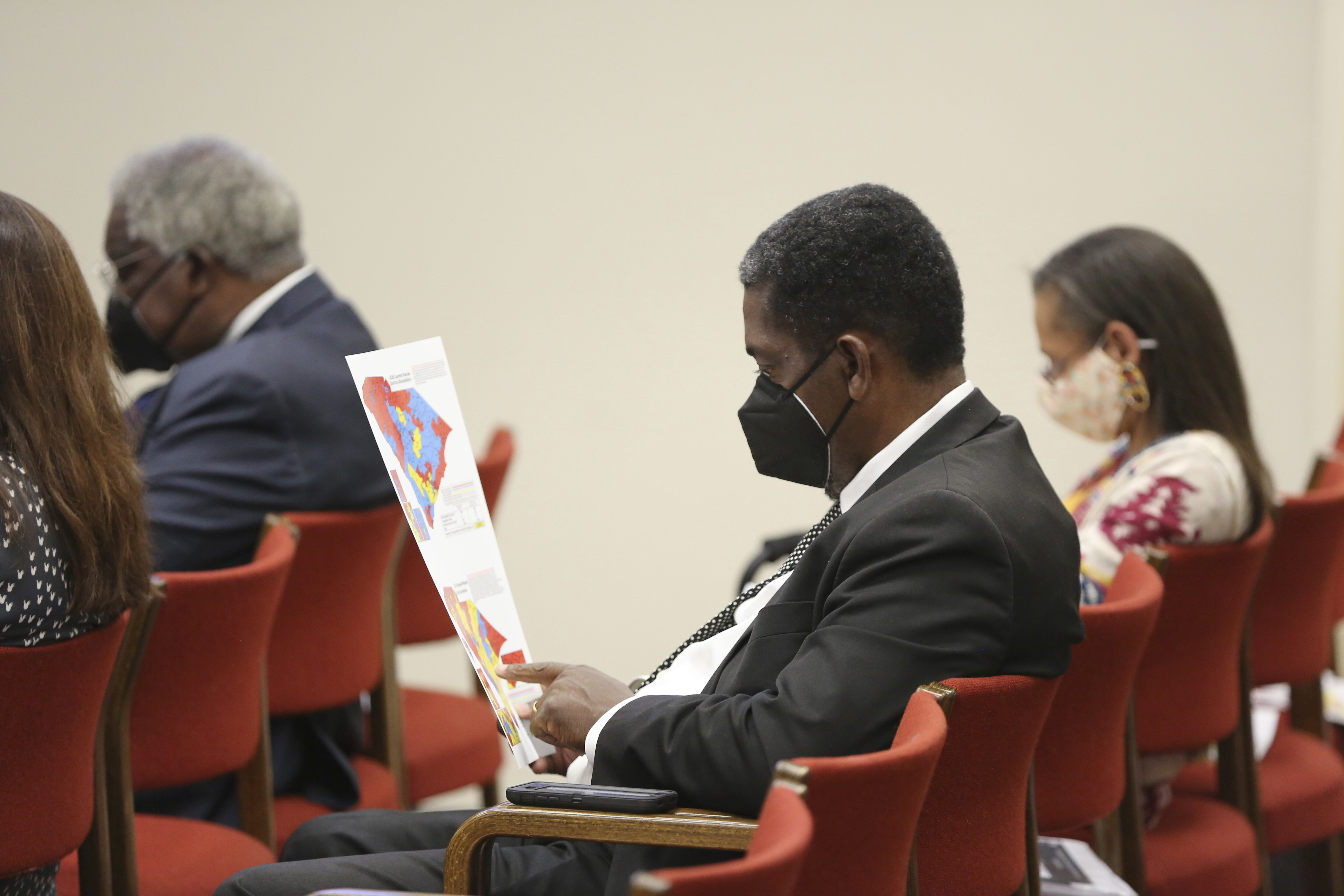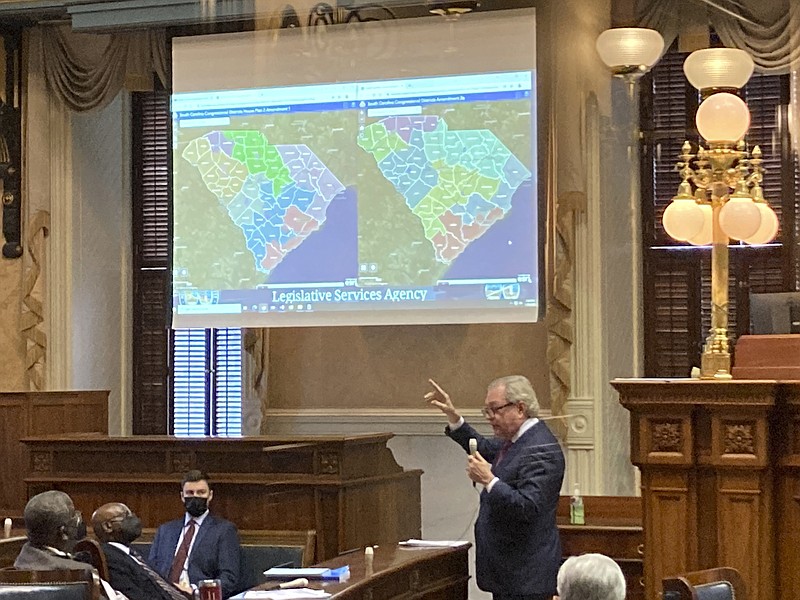COLUMBIA, S.C. -- Federal judges ordered South Carolina lawmakers to draw new congressional maps, ruling Friday that the U.S. House district lines of a seat flipped by Democrats four years ago were intentionally redrawn to split Black neighborhoods to dilute their voting power.
The state used the maps in November's midterm elections after the Republican-dominated state Legislature redrew the lines last year following the 2020 U.S. Census.
With Republicans holding a thin margin in the U.S. House, any change to competitive districts has a chance to alter the balance of power after the 2024 elections.
Friday's ruling said the coastal 1st District running from Charleston to Hilton Head Island was drawn to remove Black voters and make it a safer seat for Republicans.
The judges requested state lawmakers pass new U.S. House maps by the end of March. They said no elections can take place in the 1st District until it is redrawn.
South Carolina House Speaker Murrell Smith said he anticipated the decision would be appealed. "I maintain that the House drew maps without racial bias and in the best interest of all the people of this state," the Republican said in a statement.
Republican Rep. Nancy Mace currently represents the 1st District. She beat Joe Cunningham in 2020 after Cunningham became the first Democrat to flip a U.S. House seat in South Carolina in 30 years.
Mace won by just over 1 percentage point in 2020. But after the district was redrawn, she won by 14 percentage points in November.
After the new congressional maps were approved, civil-rights groups swiftly filed a lawsuit charging the state Legislature with choosing "perhaps the worst option of the available maps" for Black voters.
The judges ruled that to make the 1st District safer for Republicans, GOP legislative leaders who drew the new maps moved Black voters into the 6th District, which is the only one represented by a Democrat and was redrawn three decades ago to have a majority of minority voters.
The 6th District stretches through a large swath of rural South Carolina into Columbia, about 100 miles from Charleston.
The judges wrote in their ruling that Will Roberts, who drew the maps, used race to achieve the partisan goal of making the 1st District safer for Republicans, which is not allowed under federal law.
"When asked what community of interest the residents of North Charleston would have with the residents of Congressional District No. 6 in Columbia, Roberts could only think of their common proximity to Interstate I-26, albeit over 100 miles apart," the judges wrote.
The panel's decision delivered a victory for civil-rights groups after the Supreme Court in 2013 tossed a key provision of the landmark Voting Rights Act. The trial marked the first time South Carolina maps had been scrutinized since the justices removed part of the 1965 law that required the state get federal approval to protect against discriminatory redistricting proposals.
The judges did OK the split of some Black voters in the 2nd District around Columbia to include U.S. Army's Fort Jackson in the district represented by Joe Wilson. He is expected to be chairman of the Armed Services Committee, and the district boundaries had been in place for 30 years.
South Carolina's 5th District also was approved by the judges.
Attorneys for state lawmakers said their changes were not driven by race, but by South Carolina's population boom. Much of the state's 10% population growth from 2010 to 2020 occurred along the coast.
The General Assembly also argued that the maps were driven not by race but by legitimate political interests such as preserving the state's 6-to-1 ratio of Republicans to Democrats representing South Carolina in the House of Representatives.
 South Carolina Rep. Jerry Govan, D-Orangeburg, looks over a map during a House redistricting committee public hearing on Nov. 10, 2021, in Columbia, S.C. Federal judges are deciding whether South Carolina's new congressional maps are legal in a lawsuit by the NAACP which says the districts dilute Black voting power. (AP Photo/Jeffrey Collins)
South Carolina Rep. Jerry Govan, D-Orangeburg, looks over a map during a House redistricting committee public hearing on Nov. 10, 2021, in Columbia, S.C. Federal judges are deciding whether South Carolina's new congressional maps are legal in a lawsuit by the NAACP which says the districts dilute Black voting power. (AP Photo/Jeffrey Collins)